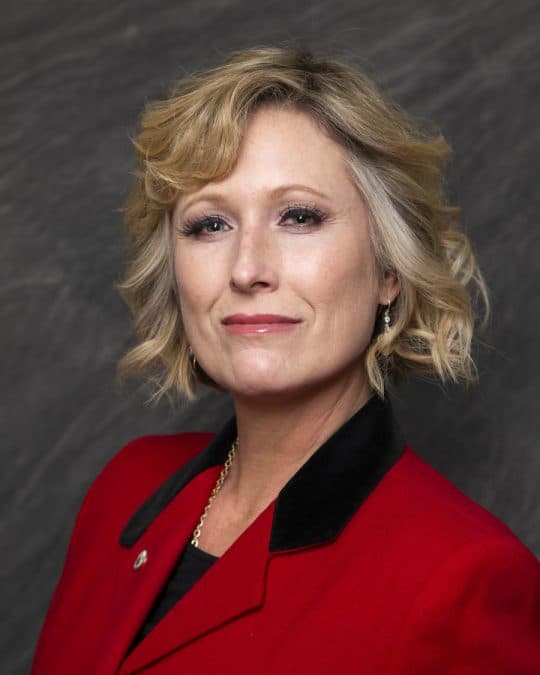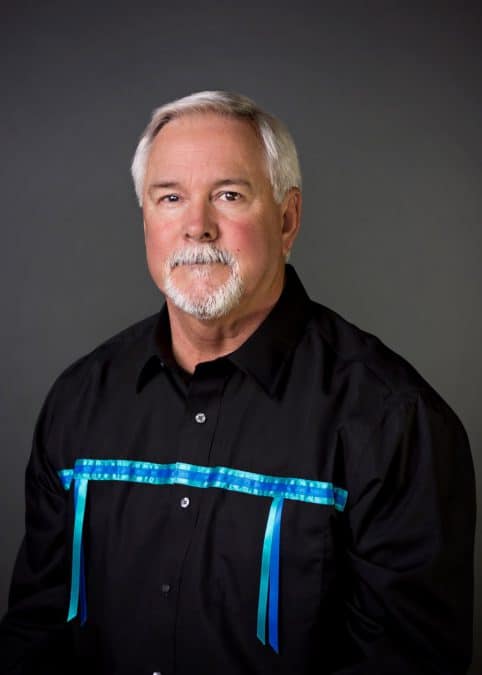In addition to the annual Tribal budget, Citizen Potawatomi voters will cast ballots for three competitive races for Oklahoma’s at-large legislative seats this June. The Hownikan asked the candidates about their backgrounds and reasons for running for Tribal office.
Lisa Kraft (incumbent)

Tell us about a meaningful experience you have had practicing Potawatomi culture?
“I practice Potawatomi every time I take a breath or think. Being Potawatomi is who I am, it is who we all are — equally. We don’t have cultural elite in our Tribe. We have members who excel at many different things. We are all descendants of a powerful legacy. In making my Potawatomi experience more meaningful, I would love to be surrounded by my immediate family as we dance in Grand Entry together.”
What is the biggest issue in Indian Country you see impacting CPN? How would you address that?
“The biggest issue in Indian Country is the same as the biggest issue facing America, in my opinion, voter turnout. Not voting can be viewed as not caring. This is very dangerous for our tribal sovereignty, especially, when leaders are elected to office whose values, views, and actions may not align with your own. I would encourage Citizen Potawatomi voters to exercise their personal power, one vote at a time, and every chance they get.”
What experiences do you have that can be applied to a legislative position with the Tribe?
“Believe me when I say, I am not any smarter or more qualified than the next Potawatomi. Rather, I am very determined. As a voter myself, I look for candidates who have leadership qualities (not necessarily experience), work well with others, weathered personal adversity, and not afraid to stand up to bullies or turn a blind eye to wrong-doing. My mom tells me, ‘Be the kind of leader I would follow.’”
What do you see as the Tribe’snext significant project? How would you approach that as a legislator?
“What if your parents told you that they would plan your life for you, tell you how to make your income and then how to spend your money — until you were 50? You might respect your parents and appreciate all the good in your life, but really, it’s about them having full control of your future. Our Nation needs, and I want to spearhead, constitutional reform to place term limits on our elected leadership.”
John Tom Anderson (challenger)

Tell us about a meaningful experience you have had practicing Potawatomi culture?
“Our family participated in a naming ceremony at the Sharp Property. The chairman (Rocky Barrett) and Vice Chairman (Linda Capps) conducted the ceremony for our family. There were 21 people named that day from our family and my dad’s brothers’ family.”
What is the biggest issue in Indian Country you see impacting CPN? How would you address that?
“American Indian sovereignty issues have been affecting CPN adversely for years. We are a Nation. When Tribal sovereignty is ignored or denied, there is usually conflict. When Tribal sovereignty is acknowledged and viewed as an opportunity, problems get solved within a framework of cordial nation-to-nation relations. Both sides win.”
What experiences do you have that can be applied to a legislative position with the Tribe?
“A tribal legislature has a heavy responsibility to appropriate the annual budget for the Tribe to assure that it is spent in accordance with legislative intent. A legislator must be able to read and analyze the financial documents assigned to the legislature. I believe my 40 years of banking experience would be beneficial in the future finances of the Tribe.”
What do you see as the Tribe’s next significant project? How would you approach that as a legislator?
“How do our best and brightest should see their Tribe as a career choice? Creating opportunity is the only way to do that. These jobs will create more and better jobs — jobs for CPN members.
“I believe with my financial background I would be able to help in the funding and future growth of the Tribe.”
Christina Brasfield (challenger)

Tell us about a meaningful experience you have had practicing Potawatomi culture?
“I believe in being the change I want to see in this world. As I have become more successful, I have searched for opportunities to assist and give back to our communities. I sponsor summer camps, offer scholarships, and am working on ways to co-sponsor Native American students to travel abroad.
“I am also interested in land conservation and animal rights. My focus is cats, large and small and I support animal rescues and sanctuaries.”
What is the biggest issue in Indian Country you see impacting CPN? How would you address that?
“Poverty and underemployment is especially prevalent in Native American communities. I would like to see more focus on remote employment opportunities within our Tribe so our Tribal members can have a variety of options.
“Alongside this is a focus on education to prepare for the jobs of tomorrow. Creating a network of individuals in jobs that are remote provides the prospect of mentor and internship experience.”
What experiences do you have that can be applied to a legislative position with the Tribe?
“I have traveled around the U.S. and have networked and made connections with people that are interested in helping preserve our culture, heritage, and success.
“I work remotely and am familiar with the caveats and benefits of such employment.
“While external assistance is appreciated, we cannot depend on others for our success so we should be focused on self-sufficiency in terms of business, employment, housing, technology, health care and more.”
What do you see as the Tribe’s next significant project? How would you approach that as a legislator?
“As we work to become more selfsufficient, I would like to see the Tribe be the leader and set precedent for technological services offered to members. We are capable of becoming our own internet service provider and opening our own data center. These are services that are good for our community, our future, and tie into remote job prospects for our Tribal members; we can be the change we want to see in this world.”
